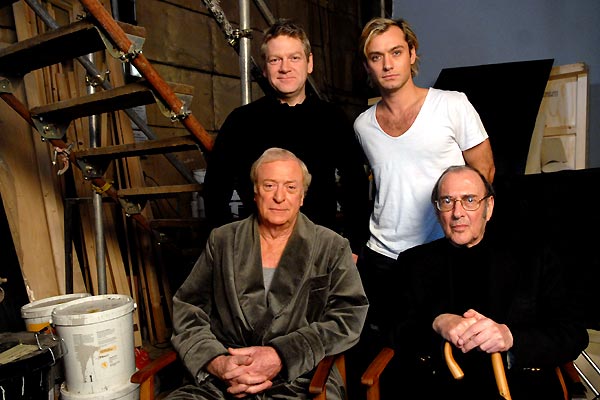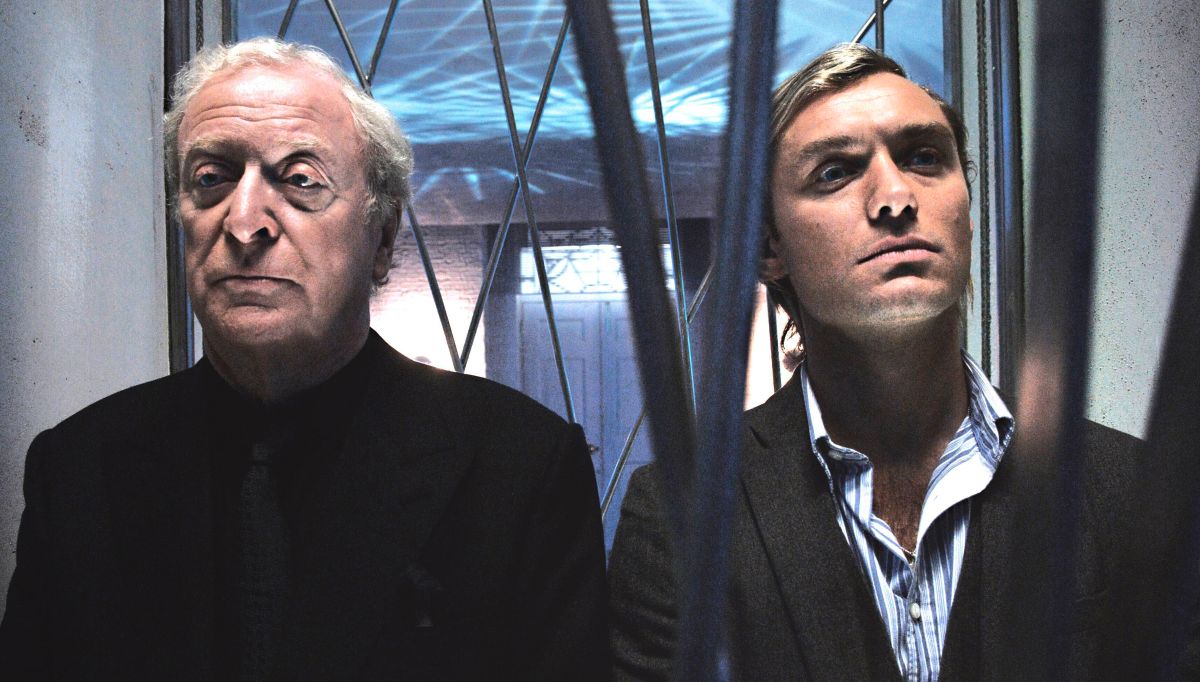On April 3rd 2003 the American weekly Variety announced that Harold Pinter would write the screenplay for the remake of “Sleuth”, the 1972 film based on Anthony Shaffer’s play, directed by Joseph L. Mankiewicz and starring Laurence Olivier and Michael Caine.
The film was screened in cinemas in 2007 and directed by Kenneth Branagh. Michael Cane played the part that had been of Laurence Olivier, with Jude Law playing that of the then forty year old British actor and Harold Pinter himself making a cameo appearance.
But as Caine said, it was not a remake: “… Harold Pinter’s screenplay took us in another direction, a completely different movie and Pinter had not seen the original film so there was not one line of the screenplay that reproposed that of 1972. Otherwise it would have been like stealing the story and title.
In fact in the 2007 adaptation, presented at the 64th edition of the Venice Film Festival, we find all of Pinter’s theatre: the film takes place in a home, where two men are involved in a psychological and physical battle for a woman, a wandering ghost, hovering over them ho never appears and becomes the story’s invisible protagonist.

An apparently linear plot.
Andrew Wyke is a mature, self-centred successul thriller writer. Milo Tindle, Andrew’s former wife’s partner, a good-looking young man with Italian traits, who tries to make it big in the world of cinema.
The young man tries to convince the author to sign the divorce papers and so Andrew invites Milo to his villa. Externally the house appears ancient, but inside it is modern and super technological, an armoured world made of cameras and stairs with no way out. Andrew counter attacks with a proposal: to steal the wife’s jewellery. He would cash the insurance and Milo could sell the valuables and live a life of leisure with his loved one.
It is but the beginning of a match in which the two players slowly move from a civil conversation to a duel in which the post at stake is slowly forgotten and transforms into a clash between two social classes, two egocentric and selfish male worlds, a dangerous and perverse game where hunter and prey often invert roles until the strongest prevails.
Despite the critics indifference and the public’s luke warm reaction at the time, we suggest you see it.
Because the film is still very relevant and Pinter always maintains the tension high while masterfully dosing that sense of uneasiness and despair which permeates his work hand in hand with British humour.
And because Kenneth Branagh has once again successfully showed us the greatness of theatre brought to the big screen.
Ph Pinterest

